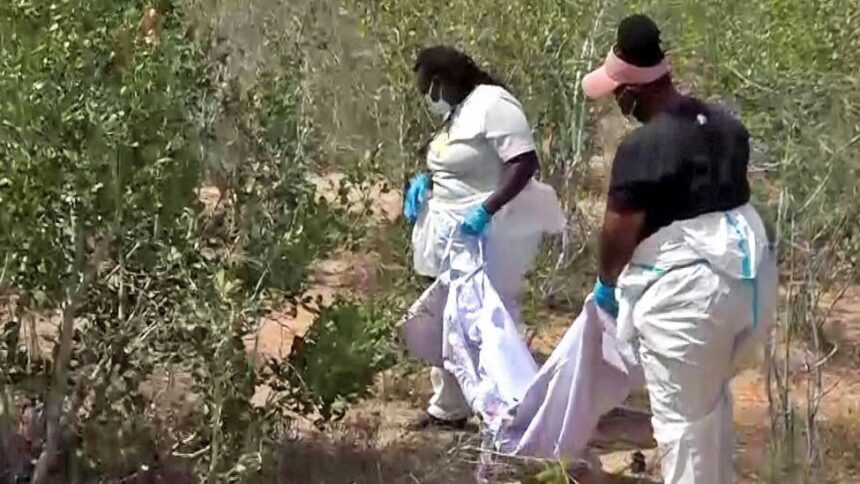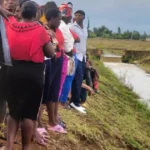One more family received four bodies after two agonising years of waiting. So far, 16 bodies have been released to families who are now preparing for burial.
Human rights groups say at least 60 victims have been positively identified, while more than 300 bodies remain unclaimed as identification efforts continue.
It was another heart-wrenching visit to the Malindi Mortuary as the family of George Keya Okaka arrived to collect the bodies of their loved ones who perished in the Shakahola Massacre.
Overcome with emotion, the family received the remains of four victims: his wife and three of their children, aged 15, 11, and 6.
Five of Okaka’s children were among those who died in the tragedy. A painful phase awaits him: DNA identification to trace the remaining two.
“Nilikuwa hapa mwezi wa tatu nikaleta DNA kwa ajili ya watoto wangu watano na mke wangu. Kwa sasa miili imepatikana ni nne: watoto watatu na mama. Kwa saa hii ni mipango ya mazishi,” George Okaka, an affected family member of the Shakahola Massacre, said.
Okaka recounted how his wife first became entangled in the teachings of controversial preacher Paul Mackenzie in 2019 while they lived in Nairobi’s Industrial Area, where she worked as a casual labourer.
Despite moving the family to Makongeni in a desperate attempt to break her away from the cult’s influence, his efforts failed.
“Nilijua wakati Mackenzie alishikwa nikajua amepotelea kwa Mackenzie. Nikajaribu kuwatorosha 2020. Mke wangu akajaribu kutoroka tena. 2022 alikuwa na number ya kucoordinate na wafuasi wa Mackenzie. Wakati moja nilipata amechoma ID akatoroka,” George Okaka said.
He says his wife later fled their home in Kakamega in 2023 with the children to join Mackenzie’s followers in the Shakahola Forest, where they died.
“Alitoa watoto kwa shule akasema ata madawa hayafai. 2023 ndio alitoka kwa nyumba yangu,” George Okaka said.
Now a grieving widower, Okaka hopes the bodies of his two remaining children—a four-year-old and an eight-month-old, will also be recovered.
Three families managed to identify the remains of their loved ones on Thursday as mortuary teams prepare the bodies for transportation and burial. So far, 16 bodies have been released to families.
Human rights activists are urging families with missing relatives to come forward and provide DNA samples to help speed up the identification process.
“Kile kinachoendelea ni DNA testing. Ile miili iko hapa ni mingi sana. So far 60 bodies ndio imematch. Kuna more than 300 bodies ambazo bado kutambuliwa,” Walid Sketty, a human rights activist, said.
“Process hii ni muhimu kwa sababu ile kesi inayoendelea, majina ya waliofariki itakuwa important,” Mathias Shipeta, Rapid Response Officer at Haki Afrika, said.
The exercise is expected to continue on Friday.



